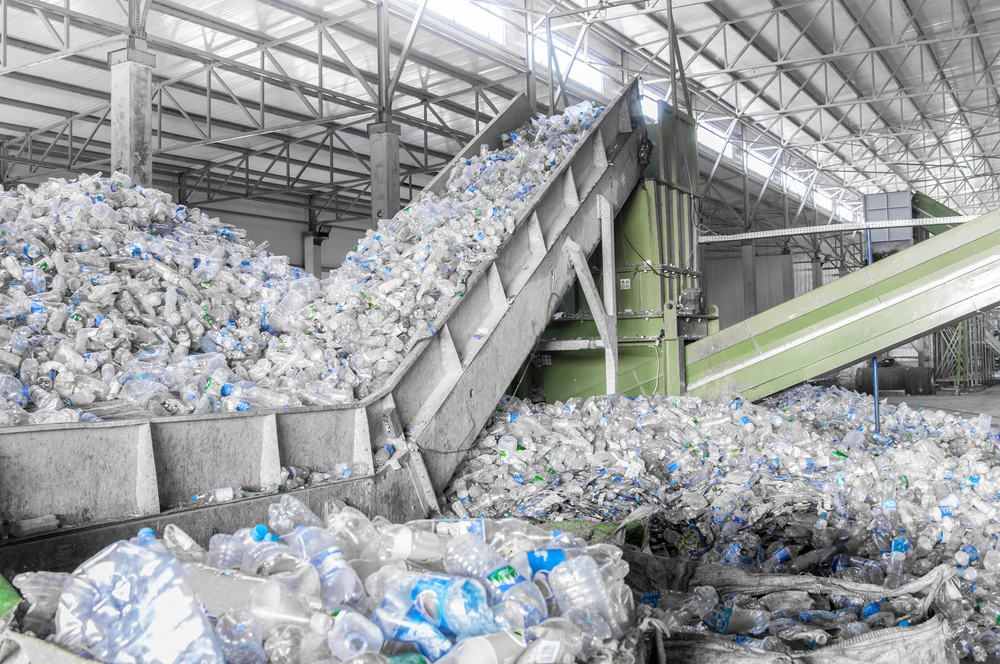In a report published this morning (10 October), plastic recyclers from across Europe, China and the US all reported that demand for new products is falling, brought on by difficult economic conditions. Coupled with access to cheap virgin polymer for producers, recyclers are reporting a difficult time.
This was summarised by the chairman of the BIR’s plastic division, Henk Alsemma, who said the challenges for the recycling industry “remain significant”.

He said that high prices for crude oil have “fanned fears of global inflation”, while at the same time, weak demand for raw materials has “tempered expectations of a large-scale recovery for a European plastics recycling market characterised by continuing low prices and elevated stocks”.
He added: “Every recycler is looking for glimmers of hope – generally, against their better and experienced judgement. Many had hoped the market situation would improve a little after the summer period but, as far as we can see at present, the conditions seen since before the holiday season will not change much prior to the end of the year. Prices are low and stocks are still high, forcing some recyclers to offer large batches of recycled material at extremely reduced levels.”
Germany
This sentiment is echoed by the German representative Marvin Pfeiffer of Sinox Polymers GMBH and board member of the BIR Plastics Committee.
He highlighted that the German economy is expected to shrink 0.4% in 2023, meaning there is “no end in sight to the recession in Germany which began in the final quarter of 2022, although the economy is expected grow again in 2024 by 1.1%.”

“Owing to the recession in Germany, high inflation, cheap virgin polymers and low downstream demand for products, demand for recycled plastics has fallen in Germany as in the whole of Europe,” he explained.
He added that recyclate demand in Germany “appears to have stabilised at a low level”.
“Prices have stopped declining further for virgin polymers as well as for recyclates after falling throughout the summer. Supply and demand have both decreased, leading to stabilised prices but less turnover at lower margins,” he said.
He also said many manufacturers using recyclate in their production still have very high stocks. Some have stopped ordering only for one to two months while others are not taking in new raw material orders for the rest of the year in order to reduce their stocks first.
This is also having an impact on exports, with German exports of plastic scrap down by 14% or 332,000 tons year on year, according to the German Federal Statistics Office.
Demand
Elsewhere in Europe, Kay Riksfjord of Norweigian firm Revac AS also said demand has been hit, and added that most recyclers expect lower demand and low prices to continue into next year, at least for the first quarter.
At the same time, Plastic Information Europe has reported a slowing in the price falls and suggests, for some grades at least, the lowest levels may have already been reached. “The coming period will reveal whether these predictions are correct,” he said.
International
Away from Europe, Dr Steven Wong of Fukutomi Co Ltd gave an update on Asia.
He explained that “China’s economic situation is continuing to weaken, marked by high unemployment rates and a decline in export as well as domestic demand”.

He said China’s vacant properties have reached staggering numbers and, with a declining population and falling prices, “recovery may take decades”.
Dr Wong added: “Recycled PP is facing global pressure owing to an oversupply of prime materials. China’s annual capacity exceeds global demand at 75 million tons, with more expected to come online this year and next. However, there is increased demand for recycled PC and POM materials, resulting in slight price increases compared to three months ago, primarily owing to rising prime material prices and markets outside of China.”
He said however that momentum in the implementation of extended producer responsibility programmes – notably in Vietnam, the Philippines and Indonesia – promises to bolster recycling collection rates. The spotlight, however, “remains on securing a consistent flow of high-quality feedstock for food-grade rPET”.
‘Slump’
The USA has also recorded an “unexpected slump in sales, volumes and pricing”, according to Sally Houghton of the Plastic Recycling Corporation of California.

She explained that it has been an “unprecedented summer” in California, with PET volumes unusually low but demand consistent. This has caused bale prices to increase owing to limited material availability. As bale prices steadily rise, imported rPET remains incredibly cheap.
“Bale prices dictate that California’s PET reclaimers should be selling washed flake at the existing price of virgin PET; unfortunately, imported post-consumer flake is up to 10 cents per pound lower, meaning that imported rPET flake is being delivered to reclaimers’ customers at less than their cost of production. The rest of the USA is not experiencing the same impact as the West Coast.”
UK
While there isn’t a UK representative in the report, at the RWM show held in September, UK recyclers across the board also reported difficulties with demand (see letsrecycle.com story).
During the session, Amie Stringer of Viridor explained that the “substantial” fall in virgin polymer price has put pressure on demand for recycled content, as people now can switch to virgin.
She added: “This is seen where companies do not have any commitments or requirements. In turn, this decreases demand for recycled plastic, which is then a pressure down on the price.”











Subscribe for free